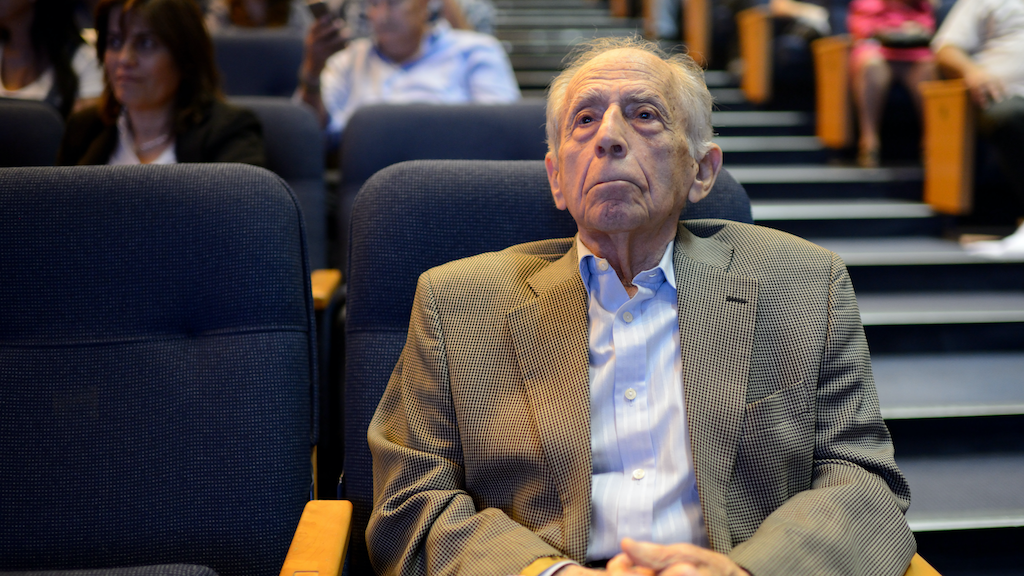A Modern-day Mordechai
Most Israelis knew Shlomo Hillel as Speaker of Israel’s Knesset, Minister of Police, and Minister of Internal Affairs. Few realized he was one of the most daring spies the country has ever known. It is thanks to Shlomo Hillel that in the middle of last century, over 120,000 Iraqi Jews escaped safely from Iraq and went home to Israel.
Iraq has always been historically central to the Jewish people, whether it be the genesis of Abraham and Sarah, the Rivers of Babylon where the Jewish exiles sat down and wept, the land of Esther and Mordechai, or the greatest center of learning the Jewish world has arguably ever seen.
Unlike the diaspora of European Jewry, no matter how successful Iraqi Jews became, they chose to live separately from their Muslim and Christian neighbours, and in doing so they maintained their ancient and distinct traditions. In to such a home Shlomo Hillel was born in 1923. He was one of eleven kids. It was a happy and Zionist home but with Hitlers rise to power, pro-Nazi sentiment was rising in Iraq. When it became illegal to teach Hebrew in Iraqi schools, Shlomo and his family, moved to Eretz Israel.
At 23, he joined the Haganah, the underground prototype for what would become the IDF and later fought in the War of Independence. After the war, he was sent clandestinely to Iraq and tasked with preparing the groundwork for Iraqi Jews to come to Israel. Shlomo helped smuggle out some of his fellow Jews by disguising them as British soldiers, and putting them into the back of army trucks that took them to Israel.
Next he found some veteran American pilots of WWII, and made it clear that people in Israel were willing to pay a lot of money for Iraqi Jews to come home. Shlomo’s job was to make sure the pilots landed in the desert, way out of sight of the Iraqis, where the Jews could then get on the plane. But the desert was vast, unsafe and unsuitable. The pilots knew it was impossible to carry out the mission. Plan B was needed.
That same day of disappointment was the very day he came up with an idea of having Jews hide at the end of the mile long Iraqi runway. Just before the plane would take off, the Jews could rush over and jump onboard. The ridiculous plan worked! Full to capacity, the plane carried 50 Jews all the way to Israel and dropped them off in the dark under the nose of the British soldiers before they were even awake. The Mossad met the American pilots, thanked them and handed them over a heavy sack of cash. The plan was so successful it was repeated time and again. It was even adopted to bring Italian Jews to Eretz Israel.
Shlomo’s next move was to disguise himself as a Frenchman, and check out the Iran-Iraq border. Jews could escape Iraq to Iran and from Iran leave for Israel. Iranian police were only too happy to help out turn a blind eye in exchange for enormous amount of money – which the Mossad were also happy to supply.
His greatest numerical success was witnessing 104,000 Jews leave Iraq with the permission of the Iraqi Prime Minister Al-Siwaidi. “Surprisingly,” the Prime Minister’s next door neighbour just “happened to be” Shlomo’s cousin. Worried that the exodus of Jews made Iraq look bad, the Prime Minister was persuaded by his Jewish neighbour that because it’s only a small number of “disgruntled” Jews who want to leave, it would therefore be prudent to let them go. To do so puts the Prime Minister in a good light. Al-Siwaidi took the mysterious neighbour’s advice and issued a decree that permitted any Jew to leave should they so wish. Within a handful of months, it was not a disgruntled few who registered to leave as he was lead to believe, but a whopping 104,000.
Shlomo continued his work over the years using his connections and cleverness, bribery and brilliance, plans and plots and twists and turns. In doing so, he brought more than 120,000 Iraqi Jews to Israel. Without a doubt, a Jewish man like him has not been seen in Persia since the days of Esther and Mordechai.





